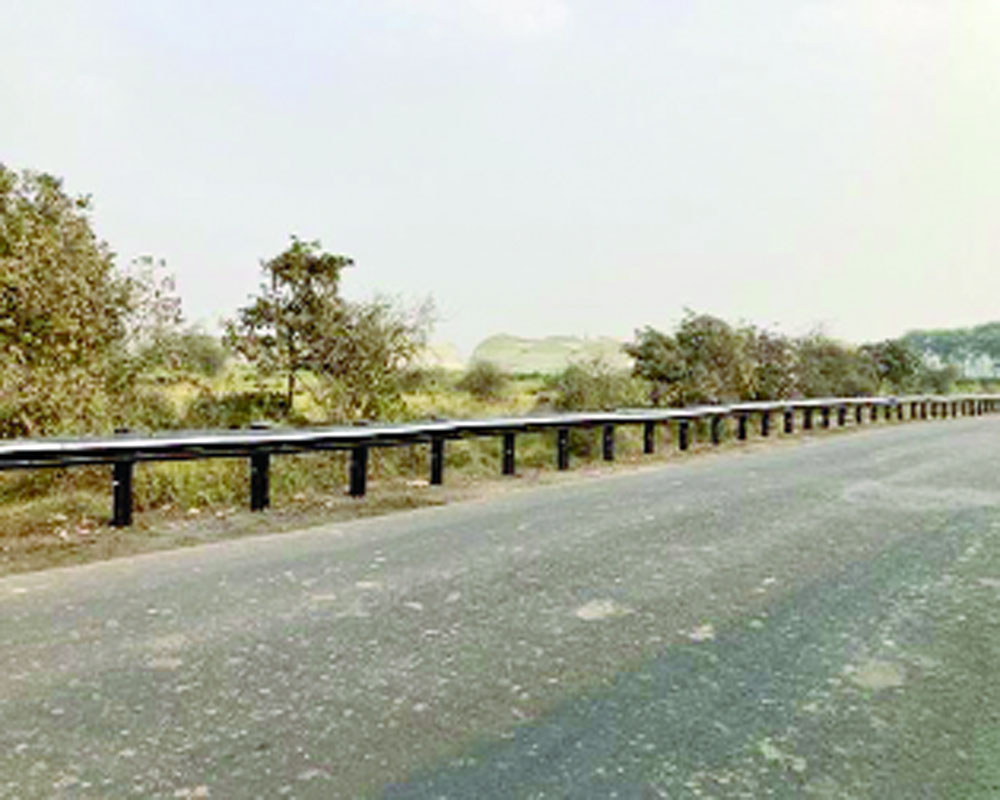To reduce the use of metallic, fibre, concrete etc in fencing crash barrier along the highways expressways and roads, an innovative way to use home-grown bamboo as crash barriers is being planned in large scale which will also earn carbon credits and translate into large scale employment opportunities both in rural as well as urban spheres.
With the India will become the world's first country to develop environmental friendly and pure natural crash barriers out of bamboos. The Nitin Gadkari led Road Transport and Highways Ministry has christened it a rustic lingo as ‘Bahu Balli’, where Bahu stands for Strength and Balli is Bamboo pole. The word has been picked similar to the word south India blockbuster Bahubali.
A prototype, bamboo crash barrier has been installed within a radius of 200 meters on the Vani-Warora highway in Nagpur area of Maharashtra. The 200-meter-long bamboo crash barrier has been installed on a highway connecting Chandrapur and Yavatmal districts in Maharashtra.
Road Transport and Highways Minister Nitin Gadkari described it as a special achievement for the country in the direction of self-reliant India. He said that this crash barrier is the right alternative to steel and it also does not harm the environment.
Road Ministry officials said the crash barrier has been installed only after testing the strength. Its strength has been tested in government institutions like the National Automotive Test Tracks (NATRAX) at Indore. “The barrier was then subjected to a fire rating test at the Central Building Research Institute (CBRI) in Roorkee, in which it received a Class 1 rating. The Indian Road Congress also recognized this,” said the official.
Bamboo barriers are being described as a better step towards Atmanirbhar Bharat and environmental protection. “Actually, it is a good alternative to steel barriers. While recycling value of steel or fibre crash barriers is 30-50 percent, while the recycling value of bamboo barriers is 50-70 percent,” added the official.
Bamboo crash barrier has been made from the bamboo species Bambusa balcooa, which has been treated with creosote oil. It has a coating of recycled high-density polyethylene (HDPI). This is also likely to give a boost to rural industry and employment for the ever growing demand with the expansion, renovation and extensions of highways and expressways.
The Centre has been aiming to reduce carbon emissions in construction activities related to the road and highways infrastructure.
India has the 2nd longest road network in the world. Amongst the different types of roads, the National Highways extending to 1,44,634 km1 till date. Construction and maintenance of roads is known to be a source of CO2, which is over and above the CO2 emitted from fuel operated vehicles on roads.
“The new and improved state of the art NH replacing congested and often circuitous routes, however, can help avoid CO2 emissions by reducing fuel combustion in vehicles plying on them as well the constructions activities,” explained the official.

























